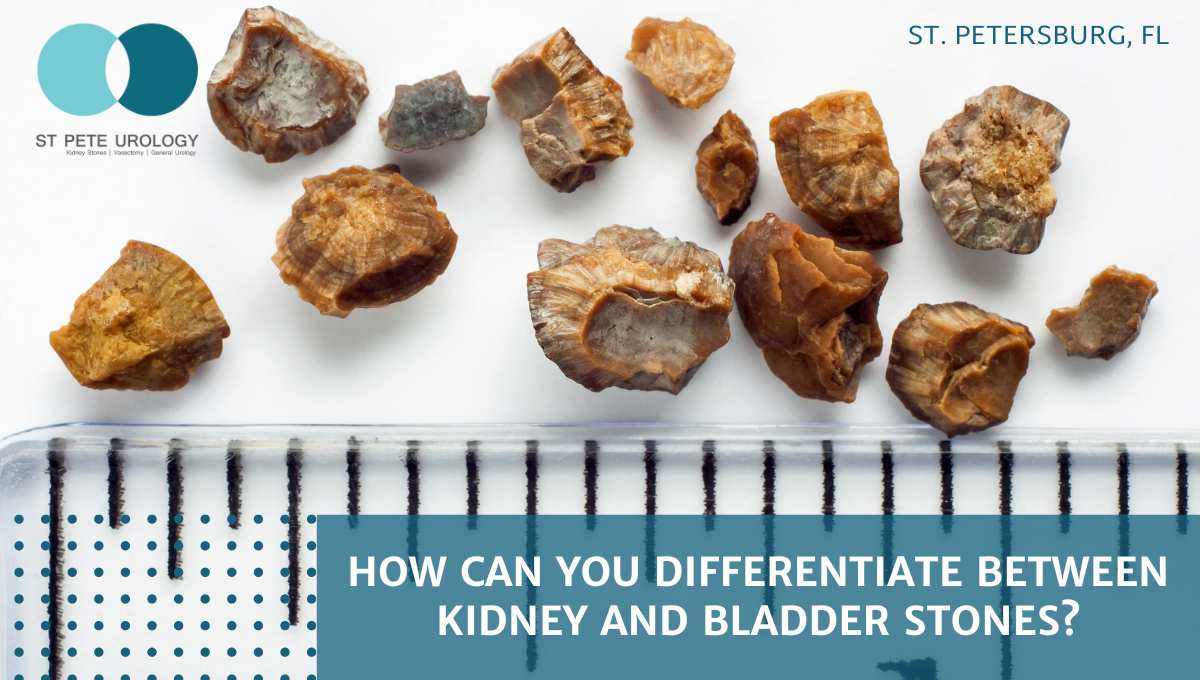Exploring the Manifestations and Causes of Kidney Stones in Comparison to Urinary System System Infections: A Thorough Overview
The expedition of kidney rocks and urinary system system infections (UTIs) discloses an intricate interaction of signs and symptoms and underlying causes that warrant careful assessment. What are the crucial distinctions in their signs, and exactly how might these educate therapy methods?
Overview of Kidney Stones
Kidney rocks, likewise known as renal calculi, form when certain substances in the pee crystallize and aggregate, causing the development of tough deposits within the kidneys. These rocks can differ in size, ranging from a grain of sand to a golf round, and can be composed of numerous products, the most common being calcium oxalate, uric acid, struvite, and cystine. The development of kidney stones is influenced by several aspects, including nutritional behaviors, fluid intake, and hereditary proneness.
Signs of kidney stones may consist of extreme discomfort in the back or side, blood in the urine, nausea or vomiting, and constant urination, particularly as the stone relocates with the urinary system system. Diagnosis usually includes imaging studies such as ultrasound or CT scans, along with urinalysis to determine the stone's make-up.
Therapy options differ based on the dimension and sort of rock, along with the seriousness of symptoms (Kidney Stones vs UTI). Tiny stones might pass naturally with increased liquid intake, while bigger rocks may call for medical treatments such as lithotripsy or surgical elimination. Comprehending the pathophysiology and risk variables connected with kidney rocks is necessary for effective avoidance and administration
Overview of Urinary System Tract Infections
Urinary system system infections (UTIs) are typical microbial infections that impact any kind of part of the urinary system, consisting of the kidneys, ureters, bladder, and urethra. They mainly occur when microorganisms, frequently from the stomach tract, go into the urinary system, leading to inflammation and infection. UTIs are classified into two major types: straightforward and complex. Uncomplicated UTIs commonly happen in healthy and balanced people with normal urinary systems, while complicated UTIs may arise in individuals with hidden problems, such as structural irregularities or endangered body immune systems.
The frequency of UTIs is especially greater in females than males, mostly because of physiological distinctions, such as a much shorter urethra. Threat factors include sex, certain contraceptive methods, urinary retention, and dehydration. The diagnosis of UTIs is typically verified with urine tests, which may reveal the presence of bacteria, white blood cells, or red blood cells.

Signs And Symptoms of Kidney Stones
The discomfort connected with kidney stones can materialize in various ways, often leading individuals to look for clinical focus. Among one of the most typical signs is severe discomfort, commonly local in the lower back or side, which might emit to the abdomen or groin. This pain, usually called sharp or cramping, can happen all of a sudden and might change in intensity.
Additionally, people may experience hematuria, or blood in the pee, which can range from microscopic total up to visible staining. This sign may be come with by modifications in urinary system routines, such as increased regularity or seriousness, along with discomfort throughout urination. Nausea and throwing up are also common, frequently arising from the body's reaction to extreme pain.
Sometimes, individuals might experience high temperature and this page chills, especially if a second infection develops because of the blockage brought on by the rocks. On the whole, the combination of serious Recommended Site discomfort, hematuria, transformed urinary patterns, and intestinal signs and symptoms can provide considerable understanding right into the visibility of kidney stones, requiring timely clinical evaluation and intervention. Comprehending these signs and symptoms is crucial for timely diagnosis and efficient administration of the problem.
Signs And Symptoms of Urinary Tract Infections
Infections within the urinary tract typically provide a series of distinct signs and symptoms that can significantly impact life. The most typical signs include a consistent desire to urinate, commonly come with by a burning experience throughout peeing, called dysuria. People may likewise experience enhanced frequency of urination, producing small amounts of pee each time.
Various other remarkable signs and symptoms consist of reeky or cloudy urine, which might show the visibility of germs or pus. Sometimes, urine may show up pink or red because of the presence of blood, a condition recognized as hematuria. In addition, people may experience pelvic pain or stress, which can additionally intensify the feeling of urgency.
Systemic signs might likewise manifest, such as fever, cools, and exhaustion, particularly if the infection has risen to the kidneys. It is vital to recognize these signs early, as untreated urinary system tract infections can lead to extra severe problems. Kidney Stones vs UTI. Motivate medical focus is advised when these signs are observed, enabling proper analysis evaluation and treatment to alleviate discomfort and prevent additional wellness concerns
Sources Of Each Condition
Frequently, kidney rocks and urinary system tract infections emerge from distinct yet often overlapping causes that can impact people in a different way. Dehydration, inadequate liquid intake, and high-sodium diets can worsen these problems, advertising crystallization within the urinary tract.

Understanding these distinctive reasons is vital for avoidance and treatment. Kidney Stones vs UTI. While lifestyle modifications might alleviate the danger of kidney stones, appropriate health and timely treatment of urinary system infections are necessary for minimizing their recurrence and associated difficulties
Final Thought
In summary, kidney stones and urinary system tract infections present distinctive signs and underlying causes. Kidney rocks are defined by severe discomfort and metabolic elements, while urinary system system infections mainly entail bacterial infections leading to urinary system seriousness and pain. Both conditions can result in hematuria, their development mechanisms vary considerably. Understanding these distinctions is crucial for reliable diagnosis and therapy, ultimately boosting client end results for those affected by either problem.
The exploration of kidney rocks and urinary system tract infections (UTIs) exposes an intricate interaction of signs and symptoms and underlying causes that call for mindful evaluation.Urinary system system infections (UTIs) are common bacterial infections that impact any kind of part of the urinary system, including the kidneys, ureters, bladder, and urethra.Often, kidney rocks and urinary tract infections occur news from distinctive yet occasionally overlapping causes that can impact individuals in different ways.In recap, kidney stones and urinary tract infections present unique signs and symptoms and underlying reasons. Kidney stones are characterized by serious pain and metabolic aspects, while urinary tract infections mainly include bacterial infections leading to urinary seriousness and pain.